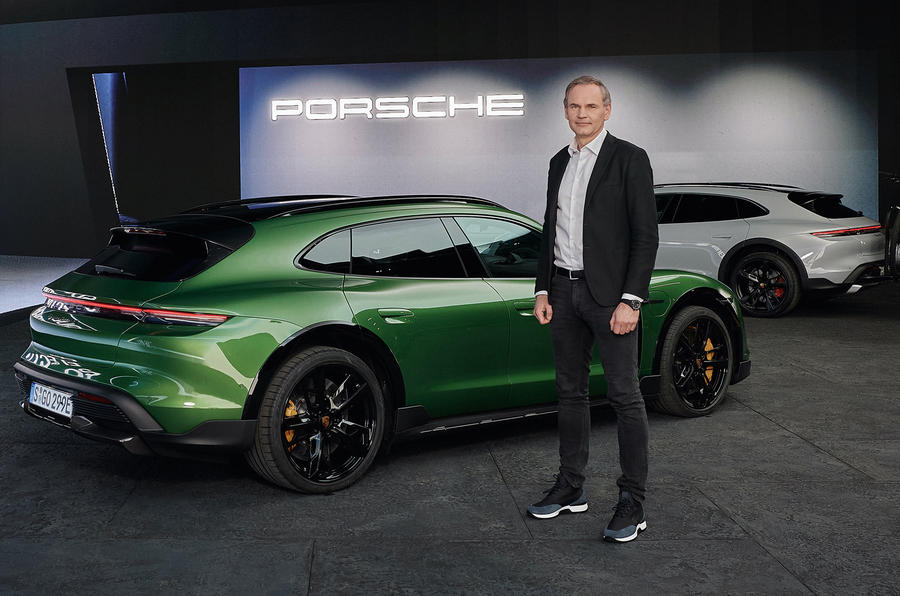Ahead of its annual results conference tomorrow, Porsche has shared details of how it plans to develop a range of high-performance batteries for its top-flight EVs.
Porsche is investigating the use of silicon, rather than graphite, anodes in battery packs to improve energy density and reduce charging times.
Porsche's first EV, the Porsche Taycan, is the first production electric car to use 800V charging architecture, and the company plans to be on the front foot with its next battery innovations, too.
The first batteries to use the new technology will be reserved for limited-run performance flagships and customer motorsport cars. But the firm said that power units used in its future production cars will "benefit from the technological experience gained".
These prototype units will be built in Europe, and Porsche said that it will "ensure that there is a completely European production chain for high-performance batteries" going forwards.
Porsche CEO Oliver Blume described the battery cell as "the combustion chamber of tomorrow," adding: "Our electrified high-performance sports and racing cars place the highest demands on battery technology. To meet these demands, Porsche needs special high-performance cells. Silicon has big potential."
Alongside the battery development programme, Porsche is planning its own fast-charging network "along the most important European major highways and motorways" to complement the existing Ionity infrastucture in which it holds a stake.
Each station will have between six and 12 chargers, offering charging rates of 350kW "and more". This suggests that Porsche is working on technology that will allow EVs to charge even faster than the Taycan, which is capped at 270kW.
Unusually, the charging stations will also have a dedicated lounge area with self-service facilities. All chargers will be accessed and operated using a dedicated smartphone app.
Blume said: "An important prerequisite for electromobility is fast and convenient charging. That's why we are currently working on the details of a concept for our own fast-charging stations.
"We will select attractive locations for these in order to offer our customers the most comfortable and fastest long-distance travel experience possible."
Both projects were announced alongside Porsche's unveiling of a plan to go CO2-neutral "across the entire value chain" as soon as 2030.









Join the debate
Add your comment
Buy your ICE 911 now!
Same shade of green as the 308? Green seems to be having a comeback. I love it
Yeah, green is the new black.